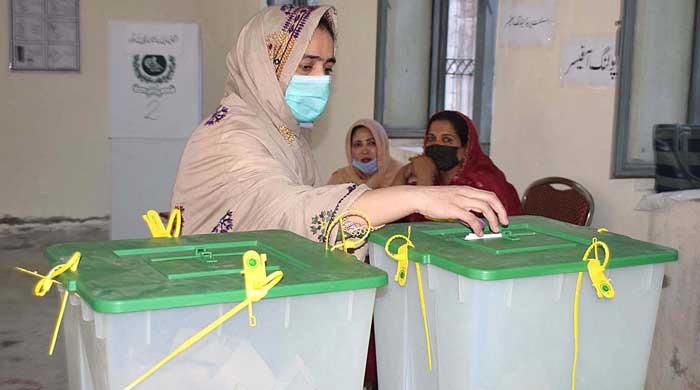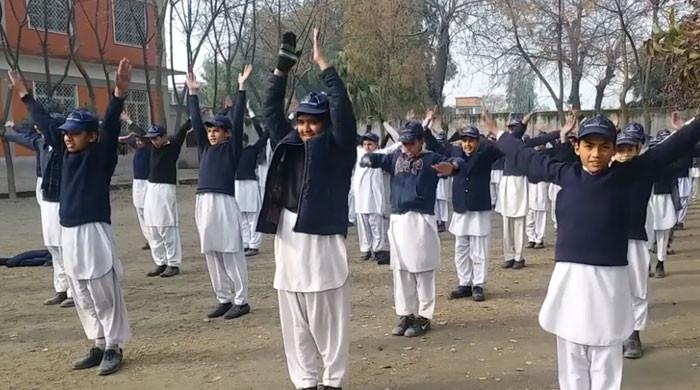THE recently-concluded visit of the Chinese Foreign Minister Wang Yi to US was full of promises and pledges which had consequential socio-economic willingness and geopolitical hurdles causing roadblocks in the drastic easiness and smoothness of the bilateral relations between the two countries. Wang’s official visit to the United States was another step forward in bringing some degree of normalcy to China-US relations. Wang’s visit took place at the invitation of Blinken, and the series of talks he had with the US high-level officials demonstrated China’s strong desire to both stabilize and enhance wide-ranging communication with the USA. Thus it is the vivid reflection of the Chinese policies of openness and global development with shared future.
It seems that Wang was on a conciliatory visit. Wang emphasized that common interests should be achieved jointly by surpassing disagreements and differences. He rightly termed that mutual in-depth dialogue should be constructive and comprehensive for stabilizing China-US relations for stable and sustainable development. The purpose of this visit was to communicate with the US to effectively implement the important consensus reached at the meeting between the two heads of state in Bali last year, and look forward to San Francisco, in order to promote the stabilization and recovery of China-US relations for it to quickly return to a healthy and stable development track.
It seems that Wang’s visit marks a strategic extension of the warming atmosphere in China-US high-level interactions since May this year and was set to create the necessary conditions and pave way for higher level exchanges between the two countries. However, the onus of putting bilateral relations on track lies entirely on the US, as the US is urged to abandon its selfish and condescending gestures in ties with China like cracking down on China in some areas to maintain the US’ hegemony. During his stay in Washington, Wang held meetings with US Secretary of State Antony Blinken, as well as National Security Advisor Jake Sullivan. Wang also met President Biden and tried to lay down the foundation of Xi’s potential visit to USA. The APEC summit will be hosted in San Francisco in mid-November.
During his meeting with Biden, Wang stated that the one-China principle and the three joint communiqués between China and the US are the most important political foundations for bilateral relations, and must be upheld without interference. During meeting with Blinken, the two discussed a range of bilateral, regional and global issues, including addressing areas of difference as well as exploring areas of cooperation without specifying topics. The Chinese Foreign Ministry termed it constructive atmosphere as the two exchanged “in-depth views” on “China-US relations and common concerns. During the meeting with Biden the US President emphasized the need of having open communication channels to managing competition responsibly. Biden stressed the need to work together to address global challenges.
Critical analysis of the recently held mutual visits and meetings reveals that Blinken’s visit to China this summer, his first since assuming office in January 2021, marked the beginning of a flurry of China-US exchanges. Afterwards, Treasury Secretary Janet Yellen, US Special Presidential Envoy for Climate John Kerry and Commerce Secretary Gina Raimondo visited China during summer season. Moreover, Chinese and US officials have had several meetings in third countries, including Italy and Switzerland, and most notably Indonesia, where Biden and Xi held their first (and so far only) in-person meeting on the sidelines of the 2022 G-20 Summit. Unfortunately, since then China-US relations have gone through a trade war, tension over Taiwan and the South China Sea. It seems that the US presidential election just over a year away, domestic political considerations will have vital role in China-US relations.
China attaches importance to the US desire for stabilizing and improving bilateral relations which not only serves the fundamental interests of both countries and their peoples but also meets the common expectations of the international community. Biden expressed that the US side is willing to maintain communication with China and work together to address global challenges. During the meeting with Sullivan, Wang referred to “Taiwan secessionism” and “South Sea China” as the greatest threats to peace and stability in the region, which are detrimental to US-Sino relations and therefore should be handled with care. Matters related to the Israel-Palestine conflict were also discussed. In summary, it appears that the Biden Administration aims to successfully host APEC, signalling to a domestic audience its capability to stabilize China-US relations while engaging in intense competition with Beijing. The US is scheduled to host APEC in 2023 in San Francisco with the theme of “Creating a Resilient and Sustainable Future for All”.
However, the accelerated interaction between China and the US has led to a more stable atmosphere between the two countries. Only if a similar tone is maintained will more high-level exchanges have meaning. It is obvious that the US is now exercising a “à la carte” manner of cooperating with China, which means the US points out areas it is willing to cooperate while still cracking down on China in other areas to maintain its hegemony. Thus double standards and confusing policies of the US are compounding effects on China-US relations which should be balanced and mutually beneficial for securing mutual interests through healthy competition, cooperation and sustainable development. The potential meeting between the two heads of state will not only inject crucial vitality to bilateral relations, but also help create global stability for a world in turmoil.
It is predicted that bilateral relations will also face pressure from 2024 elections in Taiwan. Moreover, the next year’s US election also poses a challenge as playing China card is a usual tactic by presidential candidates, that so far, the China-US relation is easing rather than improving; whether the goal of improvement can be achieved through higher-level meetings is yet to be seen. Normalcy of the US-China bilateral relations should not be hostage of any internal political compulsion or economic contradiction because of the polarized world. The quick global economic recovery badly needs economic concession, cooperation, coordination and collaboration between the two states, transmitting dividends of socio-economic cooperation to the entire world grapples with trade war, technological and investment ban, economic protectionism, unilateral sanctions and last but not least, western hegemonic circles.
—The writer is Executive Director, Centre for South Asia & International Studies, Islamabad, regional expert China, BRI & CPEC & senior analyst, world affairs, Pakistan Observer.
Email: [email protected]






